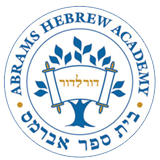#2 Budowsphere 2015
It is Rosh Hashanah, so it is inevitable that my thoughts turn to religion. I am a student of Rabbi Pinchas Mordechai Teitz zt”l, one of the greatest Rabbis in the world. He took a small town, Elizabeth, NJ, where there were few Jews and no minyan, and turned it into a thriving Jewish community complete with synagogues, elementary schools, high schools, and every necessary business and service to accommodate vibrant Jewish life. I was not only fortunate to be one of his students, but also had the privilege of working for him as a staff member at the Jewish Educational Center.
I remember a talk Reb Teitz zt”l gave about Rosh Hashanah and Yom Kippur, where he said that each year when Passover comes there are people standing in line with every conceivable question about what medicines, foods, etc. are allowed during Pesach, but no one ever asks about how to do Teshuvah- repent. As we all know, Teshuvah is a major part of the High Holidays, but people do not ask how to achieve it because it is hard to do! Change is difficult, and the Rabbi said that altering one thing about yourself is harder than learning the entire Torah. That being said, what do we do? Do we just give up and not bother?
I would like to share some advice from Ner Yisroel’s Rabbi Kaplan, who once visited Abrams. I heard him speak at Ner Yisroel about Teshuvah, and he said that immediately before we recite the Amidah we read a few words that ask Hashem to open our hearts to give praise to G-d. Rabbi Kaplan says that when you recite those words and know that you are indeed praying to Hashem you will be able to elevate your prayers and open your heart to Teshuvah.
Another obstacle to Teshuvah is that the scope of repentance is so vast- we beat our hearts so many times that it becomes overwhelming. Rabbi Kaplan says to choose one thing per year on which to focus as an area of change. If we try to bite off too much we will end up not being able to accomplish anything.
Finally, on Yom Kippur the prayers are so long that they seem never-ending, and we can end up feeling like we are on overload. What are the most important prayers? Rabbi Kaplan tells us that reciting the viddui (confession) is the most important part of the service. He even says to read them in English so that we can understand what we are saying and mean what we say. If we understand what we are reading and say the words with intention, we will have fulfilled our purpose.
Rabbi Teitz zt”l believed in what he called “the spark of the Jew.” He believed that every Jew has this spark inside her/him; it is just waiting to be ignited. I was reminded of this recently when I was in Israel talking to one of our parents. This man told me that he identifies as a Jew, but is very secular. However, he said that on Yom Kippur he walked to synagogue- a distance of over nine miles. I was shocked- I never would have imagined that of him. Even when his family moved further away from his synagogue he arranged to stay with family so that he could still walk to shul on Yom Kippur. It struck me that this is what Rabbi Teitz meant when he spoke of “the spark.” I believe that we all have that spark inside of us and can strive to ignite it and reach for greatness.
I wish everyone a happy, healthy New Year.
L’Shalom,
Rabbi Ira Budow
Postscript:
I shared this week’s message with Dr. Rivkah Blau, noted educator and daughter of
Reb Teitz zt”l, who sent me the following remarks from her father on this week’s Parsha Nitzavim 30: 11-14:
|
|
|
|
|
|
|
“My father said we first understood these p’sukim when we came to America and these were the excuses people gave.
They said that angels can keep the mitzvot, but not ordinary people here in the U.S. The Torah anticipated that—“It’s not in the heavens.”
They said on the other side of the ocean, in Europe, people could keep Shabbos and kashruth, but not here in modern times. The Torah anticipated that, too—“It’s not on the other side of the ocean.” (They were in the midbar; what ocean were they near? Clearly this is intended for a generation that will be familiar with an ocean.)
“It’s in your mouth and in your heart to do it”—if you will say that you can do it and will feel within yourself the determination and the courage to try, you will be able to observe.
My father commented, “The Torah speaks the language of tomorrow.” In the 20th century we could understand the profound meaning of these p’sukim and the anticipation of the challenges we would face.”
Ultimately, each of us has the ability to know and observe the Torah in his/her heart- we only have to make a sincere effort and believe that it is achievable.
